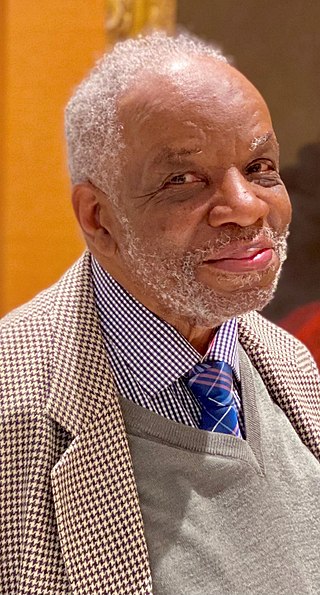Related Research Articles
Affirmative action refers to a set of policies and practices within a government or organization seeking to benefit marginalized groups. Historically and internationally, support for affirmative action has been justified by the idea that it may help with bridging inequalities in employment and pay, increasing access to education, and promoting diversity, social equity and redressing alleged wrongs, harms, or hindrances, also called substantive equality.
Racial quotas in employment and education are numerical requirements or quotas for hiring, promoting, admitting and/or graduating members of a particular racial group. Racial quotas are often established as means of diminishing racial discrimination, addressing under-representation and evident racism against those racial groups or, the opposite, against the disadvantaged majority group. Conversely, quotas have also been used historically to promote discrimination against minority groups by limiting access to influential institutions in employment and education.
Reverse discrimination is a term used to describe discrimination against members of a dominant or majority group, in favor of members of a minority or historically disadvantaged group.
Regents of the University of California v. Bakke, 438 U.S. 265 (1978), was a landmark decision by the Supreme Court of the United States that involved a dispute of whether preferential treatment for minorities could reduce educational opportunities for whites without violating the Constitution. It upheld affirmative action, allowing race to be one of several factors in college admission policy. However, the court ruled that specific racial quotas, such as the 16 out of 100 seats set aside for minority students by the University of California, Davis, School of Medicine, were impermissible.
Racial discrimination is any discrimination against any individual on the basis of their race, ancestry, ethnicity, and/or skin color and hair texture. Individuals can discriminate by refusing to do business with, socialize with, or share resources with people of a certain group. Governments can discriminate explicitly in law, for example through policies of racial segregation, disparate enforcement of laws, or disproportionate allocation of resources. Some jurisdictions have anti-discrimination laws which prohibit the government or individuals from being discriminated based on race in various circumstances. Some institutions and laws use affirmative action to attempt to overcome or compensate for the effects of racial discrimination. In some cases, this is simply enhanced recruitment of members of underrepresented groups; in other cases, there are firm racial quotas. Opponents of strong remedies like quotas characterize them as reverse discrimination, where members of a dominant or majority group are discriminated against.
Numerus clausus is one of many methods used to limit the number of students who may study at a university. In many cases, the goal of the numerus clausus is simply to limit the number of students to the maximum feasible in some particularly sought-after areas of studies with an intent to keep a constant supply of qualified workforce and thus limit competition. In historical terms however, in some countries, numerus clausus policies were religious or racial quotas, both in intent and function.
Equal opportunity is a state of fairness in which individuals are treated similarly, unhampered by artificial barriers, prejudices, or preferences, except when particular distinctions can be explicitly justified. For example, the intent of equal employment opportunity is that the important jobs in an organization should go to the people who are most qualified – persons most likely to perform ably in a given task – and not go to persons for reasons deemed arbitrary or irrelevant, such as circumstances of birth, upbringing, having well-connected relatives or friends, religion, sex, ethnicity, race, caste, or involuntary personal attributes such as disability, age. According to proponents of the concept, chances for advancement should be open to everybody without regard for wealth, status, or membership in a privileged group. The idea is to remove arbitrariness from the selection process and base it on some "pre-agreed basis of fairness, with the assessment process being related to the type of position" and emphasizing procedural and legal means. Individuals should succeed or fail based on their efforts and not extraneous circumstances such as having well-connected parents. It is opposed to nepotism and plays a role in whether a social structure is seen as legitimate. The concept is applicable in areas of public life in which benefits are earned and received such as employment and education, although it can apply to many other areas as well. Equal opportunity is central to the concept of meritocracy. There are two major types of equality:

The Universities and Colleges Admissions Service is a charity and private limited company based in Cheltenham, Gloucestershire, England, which provides educational support services. Formed on July 27th, 1993 by the merger of the former university admissions system, Universities Central Council on Admissions and the former polytechnics admissions system, Polytechnics Central Admissions System, the company's main role is to operate the application process for British universities and colleges. The company is funded by fees charged to applicants and universities as well as advertising income.
The Commission for Racial Equality (CRE) was a non-departmental public body in the United Kingdom which aimed to address racial discrimination and promote racial equality. The commission was established in 1976, and disbanded in 2007 when its functions were taken over by the newly created Equality and Human Rights Commission.
A Jewish quota was a discriminatory racial quota designed to limit or deny access for Jews to various institutions. Such quotas were widespread in the 19th and 20th centuries in developed countries and frequently present in higher education, often at prestigious universities.

Bhikhu Chotalal Parekh, Baron Parekh, is a British political theorist, academic, and life peer. He is a Labour Party member of the House of Lords. He was Professor of Political Theory at the University of Hull from 1982 to 2001, and Professor of Political Philosophy at the University of Westminster from 2001 to 2009. He served as president of the Academy of Social Sciences from 2003 to 2008.
Universities Central Council on Admissions (UCCA) provided a clearing house for university applications in the United Kingdom from its formation in 1961 until its merger with PCAS to form UCAS in 1993.

In the United States, affirmative action consists of government-mandated, government-approved, and voluntary private programs granting special consideration to groups considered or classified as historically excluded, specifically racial minorities and women. These programs tend to focus on access to education and employment in order to redress the disadvantages associated with past and present discrimination. Another goal of affirmative action policies is to ensure that public institutions, such as universities, hospitals, and police forces, are more representative of the populations they serve.

Mandla v Dowell-Lee [1982] UKHL 7 is a United Kingdom law case on racial discrimination. It held that Sikhs are to be considered an ethnic group for the purposes of the Race Relations Act 1976.
Equality and diversity is a term used in the United Kingdom to define and champion equality, diversity and human rights as defining values of society. It promotes equality of opportunity for all, giving every individual the chance to achieve their potential, free from prejudice and discrimination.
Students for Fair Admissions v. Harvard, 600 U.S. 181 (2023), is a landmark decision of the Supreme Court of the United States in which the court held that race-based affirmative action programs in college admissions processes violate the Equal Protection Clause of the Fourteenth Amendment. With its companion case, Students for Fair Admissions v. University of North Carolina, the Supreme Court effectively overruled Grutter v. Bollinger (2003) and Regents of the University of California v. Bakke (1978), which validated some affirmative action in college admissions provided that race had a limited role in decisions.
Discrimination in education is the act of discriminating against people belonging to certain demographics in enjoying full right to education. It is a violation of human rights. Education discrimination can be on the basis of ethnicity, nationality, age, gender, race, economic condition, language spoken, caste, disability and religion.
Joseph Gavin Collier is a British retired clinical pharmacologist and emeritus professor of medicines policy at St George's Hospital and Medical School in London, whose early research included establishing the effect of aspirin on human prostaglandins and looking at the role of nitric oxide and angiotensin converting enzyme in controlling blood vessel tone and blood pressure. Later, in his national policy work, he helped change the way drugs are priced and bought by the NHS, and ensured that members of governmental advisory committees published their conflicts of interest.

Proposition 16 is a California ballot proposition that appeared on the November 3, 2020, general election ballot, asking California voters to amend the Constitution of California to repeal Proposition 209 (1996). Proposition 209 amended the state constitution to prohibit government institutions from considering race, sex, or ethnicity, specifically in the areas of public employment, public contracting, and public education. Therefore, Proposition 209 banned the use of race- and gender-based affirmative action in California's public sector.

Aggrey Washington Burke FRCPsych is a British retired psychiatrist and academic, born in Jamaica, who spent the majority of his medical career at St George's Hospital in London, UK, specialising in transcultural psychiatry and writing literature on changing attitudes towards black people and mental health. He has carried out extensive research on racism and mental illness and is the first black consultant psychiatrist appointed by Britain's National Health Service (NHS).
References
- 1 2 Martin MacEwen (2002). Housing, Race and Law: The British Experience. London and New York: Routledge. p. 301. ISBN 0-415-00063-7.
- ↑ Julian Simpson (2018). "Part II; The Colonial legacy, racism and the staffing of surgeries. Chapter 4. Discrimination and the development of General Practice". Migrant Architects of the NHS: South Asian Doctors and the Reinvention of British General Practice (1940s-1980s). Manchester University Press. p. 129. ISBN 978-1-7849-9130-2.
- 1 2 3 Ratcliffe, Peter (2001). "Race and ethnicity research in Britain; Key ethical and political considerations". The Politics of Social Science Research: Race, Ethnicity and Social Change. Palgrave Macmillan UK. p. 116–118. ISBN 978-1-349-40525-1.
- 1 2 3 4 5 6 "Introduction". Medical School Admissions: Report of a Formal Investigation Into St. George's Hospital Medical School. Commission for Racial Equality. 1988. p. 5. ISBN 978-0-907920-94-6.
- 1 2 Paul Iganski; David Mason (2018). Ethnicity, Equality of Opportunity and the British National Health Service. Routledge. p. 135. ISBN 978-1-138-72873-8.
- 1 2 3 4 5 Lowry, Stella; Macpherson, Gordon (5 March 1988). "A blot on the profession". British Medical Journal. 296 (6623): 657–658. doi:10.1136/bmj.296.6623.657. PMC 2545288 . PMID 3128356.
- 1 2 "Section 2: The Commission's Findings". Medical School Admissions: Report of a Formal Investigation Into St. George's Hospital Medical School. Commission for Racial Equality. 1988. p. 12-13. ISBN 978-0-907920-94-6.
- ↑ Richard Skellington (1996). 'Race' in Britain Today. London: SAGE Publications. p. 83–85. ISBN 0-7619-5049-4.
- ↑ Richard Skellington (1996). 'Race' in Britain Today. London: SAGE Publications. p. 118. ISBN 0-7619-5049-4.
- ↑ Morrison, Lionel (24 February 1988). "CRE investigation finds discrimination in medical school admissions". Commission for Racial Equality; Press release. No. 271. Elliott House, 10/12 Allington Street, London.
{{cite news}}: CS1 maint: location (link) - ↑ Cassidy, Jane (1 August 2009). "Name and Shame" (PDF). British Medical Journal . 339: 267. doi:10.1136/bmj.b2693. PMID 19633039. S2CID 6830670.
- ↑ Troyna, Barry (1 September 1988). "Book reviews : 1988 Medical School Admissions: Report of a formal investigation into St George's Hospital Medical School Campaign for Racial Equality". Critical Social Policy. 8 (23): 118–122. doi:10.1177/026101838800802309. ISSN 0261-0183.
- ↑ Sanders, Peter (2005). "3. Tackling Racial Discrimination". In Blackstone, Tessa; Bhikhu Parekh, Peter Sanders, Bhikhu; Sanders, Peter (eds.). Race Relations in Britain: A Developing Agenda. Routledge. p. 45. ISBN 0-415-15009-4.
- ↑ J. K. Cruickshank; D. G. Beevers (2013). Ethnic Factors in Health and Disease. Butterworth & Co. p. 77. ISBN 978-0-7236-0916-2.
- ↑ Backstone, Tessa (2005). "6. Towards e-learning society". In Blackstone, Tessa; Bhikhu Parekh, Peter Sanders, Bhikhu; Sanders, Peter (eds.). Race Relations in Britain: A Developing Agenda. Routledge. p. 103. ISBN 0-415-15009-4.